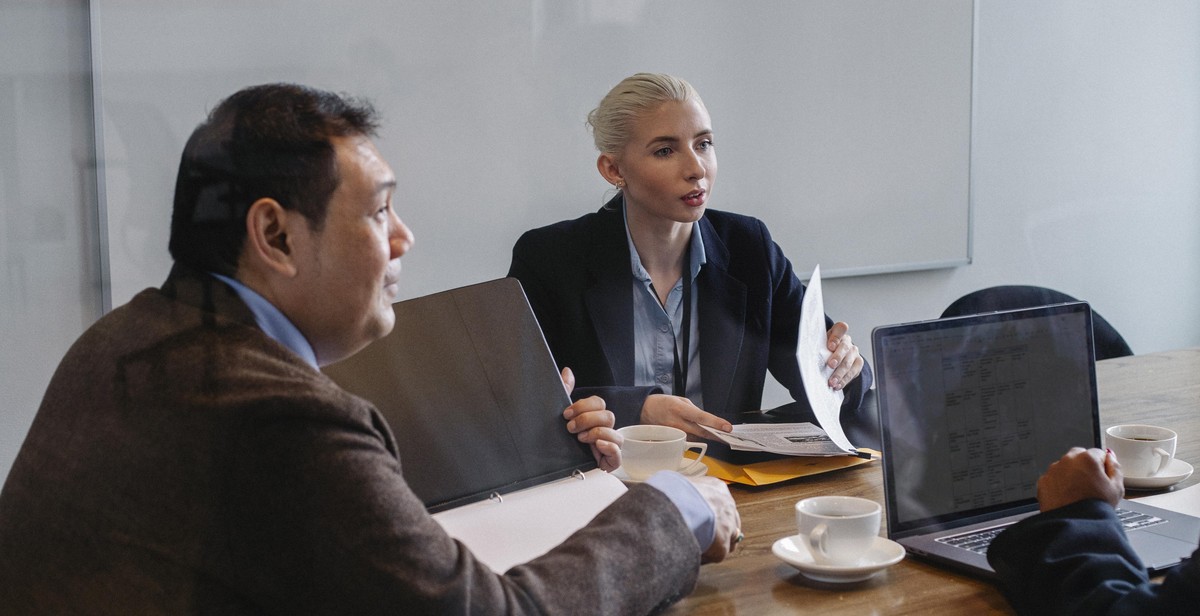How to Develop Effective Problem-Solving Skills in Teamwork
Effective problem-solving is one of the most important skills that any team can possess. Whether you are working in a business, a non-profit organization, or any other type of team, the ability to identify and resolve problems quickly and efficiently is crucial to achieving success. However, developing effective problem-solving skills in teamwork requires more than just a willingness to work together. It requires a structured approach that takes into account the unique strengths and weaknesses of each team member, as well as the specific challenges facing the team.
The Benefits of Effective Problem-Solving in Teamwork
Effective problem-solving in teamwork can lead to a number of benefits, including:
- Increased efficiency and productivity
- Improved communication and collaboration
- Greater innovation and creativity
- Higher quality outcomes
- Stronger team morale and satisfaction
The Key Elements of Effective Problem-Solving in Teamwork
There are a number of key elements that are essential to developing effective problem-solving skills in teamwork, including:
- Clear communication and active listening
- Shared goals and objectives
- A willingness to collaborate and compromise
- An understanding of each team member’s strengths and weaknesses
- A structured problem-solving process
By focusing on these elements, teams can develop the skills and strategies necessary to tackle even the most complex problems and achieve their goals.

Why Effective Problem-Solving Skills are Important in Teamwork
Teamwork is essential in every organization, and the ability to solve problems effectively is a crucial skill for any team to have. Effective problem-solving skills in teamwork can lead to improved communication, increased efficiency, and better decision-making. Here are some reasons why effective problem-solving skills are important in teamwork:
Improved Communication
Effective problem-solving skills in teamwork require excellent communication among team members. When team members communicate effectively, they can share their ideas, opinions, and perspectives on a particular problem. This enables the team to identify the root cause of the problem and find the best solution. Effective communication also promotes transparency and trust among team members, which is essential in building strong and healthy working relationships.
Increased Efficiency
When team members have effective problem-solving skills, they can identify problems quickly and find solutions efficiently. This means that the team can save time and resources that would have been wasted on prolonged problem-solving processes. Effective problem-solving skills also enable team members to prioritize tasks and focus on the most critical issues. This, in turn, increases the team’s productivity and efficiency, leading to better performance and results.
Better Decision-Making
Effective problem-solving skills require critical thinking, analysis, and evaluation of different options. When team members work together to solve problems, they can share their perspectives and ideas, leading to better decision-making. This is because the team can consider various options and choose the best solution that aligns with the team’s goals and objectives. Effective problem-solving skills also enable team members to anticipate potential problems and mitigate them before they occur.
Overall, effective problem-solving skills are essential for teamwork. They promote improved communication, increased efficiency, and better decision-making, which are crucial for any team’s success. By developing effective problem-solving skills, teams can work together to overcome challenges and achieve their goals.

Steps to Develop Effective Problem-Solving Skills in Teamwork
Effective problem-solving skills are essential for the success of any team. It is important to develop a systematic approach to problem-solving to ensure that the team is able to identify and address issues in a timely and efficient manner. Here are the steps to develop effective problem-solving skills in teamwork:
1. Identify the Problem
The first step in problem-solving is to identify the problem. The team should work together to clearly define the problem and understand its root cause. It is important to gather all the necessary information to fully understand the issue before moving on to brainstorming solutions.
2. Brainstorm Solutions
Once the problem has been identified, the team should brainstorm potential solutions. This is a collaborative process where everyone should contribute their ideas. It is important to encourage creativity and to consider all possible solutions, even if they seem unconventional.
3. Evaluate the Solutions
After brainstorming, the team should evaluate each solution to determine its feasibility and effectiveness. It is important to consider the pros and cons of each solution and to weigh the potential outcomes. The team should also consider any potential risks and decide if the solution is worth pursuing.
4. Implement the Solution
Once the team has decided on the best solution, it is time to implement it. This may involve delegating tasks to team members or working together to implement the solution as a group. It is important to communicate clearly and ensure that everyone is on the same page.
5. Review the Outcome
After implementing the solution, it is important to review the outcome. The team should evaluate whether or not the solution was effective in addressing the problem. If the solution was not successful, the team should go back to the drawing board and consider other options. If the solution was successful, the team should identify what worked well and consider how they can apply these strategies in the future.
Conclusion
In conclusion, developing effective problem-solving skills in teamwork requires a systematic approach that involves identifying the problem, brainstorming solutions, evaluating the solutions, implementing the solution, and reviewing the outcome. By following these steps, teams can work together to address issues in a timely and efficient manner, leading to greater success and productivity.

Tips to Enhance Problem-Solving Skills in Teamwork
Effective problem-solving skills are necessary for any team to achieve its goals and objectives. Here are some tips to enhance problem-solving skills in teamwork:
Encourage Open Communication
Open communication is the key to effective problem-solving in teamwork. Encourage team members to express their opinions and ideas without fear of criticism or judgment. When team members feel comfortable sharing their thoughts and ideas, it creates a positive and collaborative environment that fosters creativity and innovation. As a leader, you should be open to different perspectives and ideas, and encourage your team members to do the same.
Be Open to Feedback
Feedback is an essential component of problem-solving in teamwork. Encourage your team members to provide constructive feedback to each other. When team members receive feedback, they can learn from their mistakes and improve their skills. As a leader, you should also be open to feedback from your team members, as it can help you identify areas for improvement and make necessary changes.
Practice Active Listening
Active listening is an essential skill for effective problem-solving in teamwork. Encourage your team members to listen actively to each other and to ask questions to clarify their understanding. When team members listen actively, they can gain a better understanding of the problem and develop more effective solutions. As a leader, you should model active listening by giving your team members your full attention and asking questions to clarify their ideas.
Develop Trust and Respect
Trust and respect are essential for effective problem-solving in teamwork. When team members trust and respect each other, they are more likely to share their ideas and work together to find solutions. As a leader, you should foster an environment of trust and respect by treating your team members with fairness and kindness.
Encourage Collaboration
Collaboration is essential for effective problem-solving in teamwork. Encourage your team members to work together to find solutions and to share their skills and expertise. When team members collaborate, they can leverage their diverse perspectives and experiences to develop more effective solutions. As a leader, you should encourage collaboration by assigning tasks that require teamwork and providing opportunities for team members to work together.
By following these tips, you can enhance problem-solving skills in teamwork and achieve better results.

Conclusion
Effective problem-solving skills are essential for any teamwork to thrive. When team members can work together to identify and solve problems, they can achieve their goals faster and more efficiently. Developing problem-solving skills takes time and practice, but the benefits are well worth the effort.
Key Takeaways
- Effective problem-solving skills require a collaborative approach.
- Teams should take the time to define the problem and gather relevant information before jumping to solutions.
- Encouraging creativity and diverse perspectives can lead to more innovative solutions.
- Communication is key in problem-solving, and team members should actively listen to one another.
- Evaluating the effectiveness of the solution and reflecting on the process can help improve future problem-solving efforts.
Final Thoughts
Developing effective problem-solving skills in teamwork is an ongoing process that requires patience, openness, and a willingness to learn. By working together and utilizing a variety of problem-solving techniques, teams can overcome obstacles and achieve their goals. It is essential to celebrate successes and learn from failures to continually improve your problem-solving skills and teamwork abilities.
